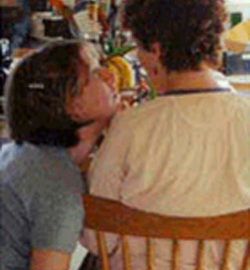
We live in a school culture within a parenting culture that expects its children to fit in and embrace that culture.
For many children acculturation happens seamlessly. But for at least 1 in 5 children*, it requires giving up oneself, shifting off base, and surrendering to a non-nurturing authority. In other words, understanding that you are wrong and the other is right. Parents are expected to take on the role of enforcer using consequences, threats, punishment, withdrawal of what is most cherished—coercive tactics to manipulate children into being who they are expected to be.
These are the children we see as defiant and oppositional. The square pegs society tries to fit into its round holes. And if they don’t adjust enough, they become the troublemakers, the problems, the ones we fear our children will grow up to be. These are the children who are tough to raise and who cause problems in classrooms.
At home, they fight the rules and argue every direction given. Parents complain they never listen, won’t do as they’re told and refuse to comply. At school








